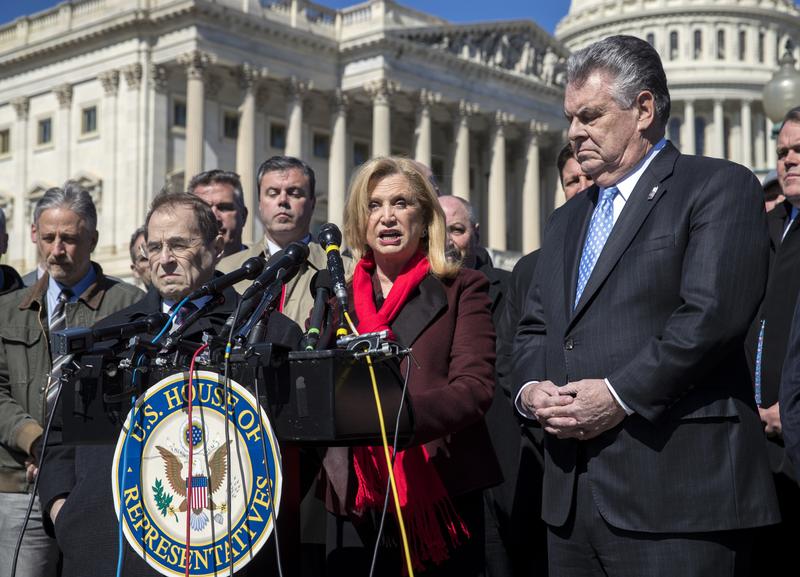
New York Congressional members, first responders and comedian Jon Stewart say they'll fight a Trump administration proposal to alter a 9/11 health care program.
The switch would be a byproduct of a larger administrative change. Currently, the National Institute for Occupational Safety and Health — which oversees the 9/11 program — is part of the Centers for Disease Control. The Trump administration has proposed moving that agency to be under the purview of the the National Institutes for Health instead.
But the 9/11 health care program would remain at the CDC, without a clear understanding of who, exactly, would oversee it.
Worried advocates say the change could alter patient care.
“The program is working," said Dr. Jacqueline Moline, director of the Queens WTC program at Northwell Health. "We’re taking care of patients seamlessly. And to disrupt that would be an egregious affront."
Moline said it could also make it more difficult to get new 9/11-related diseases covered.
White House officials said the move was intended to consolidate research-focused health care agencies at the National Institutes for Health, while the Centers for Disease Control and Prevention would oversee treatment-focused agencies.
But New York Republican Peter King said the proposal was the work of a recurring foe of New York priorities: Office of Management and Budget director Mick Mulvaney. As a House member, King and Mulvaney clashed over funding for both the 9/11 health care program and for Sandy victims.
"He was against reauthorizing. He never supported this program," King said. "He's voted against New York on so many different issues."
Advocates led by first responders fought tooth and nail to create the 9/11 health care program in 2011. They had to fight again in 2015 to make the program permanent.
John Feal, who heads a foundation that fought for the 9/11 health care program, said they'll do it again if they have to.
"I have confidence...in my team of merry, hard-ass, core-kicking, you-know-what 9/11 responders, who will come back here and turn Congress upside down. Not once, but twice, a third time," Feal said.
Congress will accept or reject the proposed changes when the House and Senate write their own spending plans.
